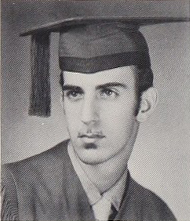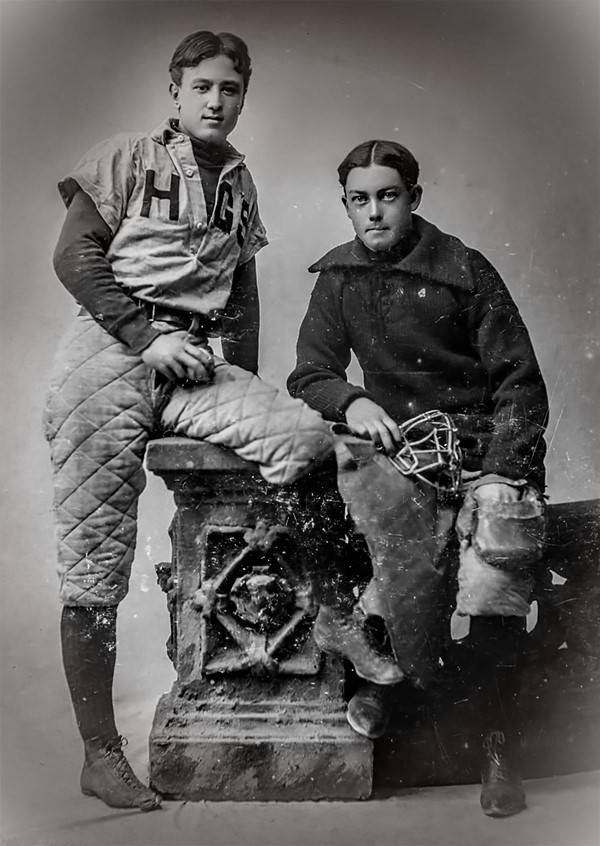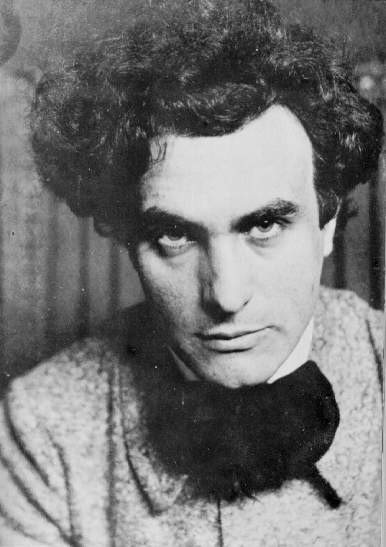|
Maximalism
In the arts, maximalism, a reaction against minimalism, is an aesthetic of excess. The philosophy can be summarized as "more is more", contrasting with the minimalist motto "less is more". Literature The term ''maximalism'' is sometimes associated with postmodern novels, such as those by David Foster Wallace and Thomas Pynchon, where digression, reference, and elaboration of detail occupy a great fraction of the text. It can refer to anything seen as excessive, overtly complex and "showy", providing redundant overkill in features and attachments, grossness in quantity and quality, or the tendency to add and accumulate to excess. Novelist John Barth defines literary maximalism through the medieval Roman Catholic Church's opposition between "two...roads to grace:" the ''via negativa'' of the monk's cell and the hermit's cave, and the ''via affirmativa'' of immersion in human affairs, of being in the world whether or not one is of it. Critics have aptly borrowed those terms to chara ... [...More Info...] [...Related Items...] OR: [Wikipedia] [Google] [Baidu] |
Postmodern Literature
Postmodern literature is a form of literature that is characterized by the use of metafiction, unreliable narration, self-reflexivity, intertextuality, and which often thematizes both historical and political issues. This style of experimental literature emerged strongly in the United States in the 1960s through the writings of authors such as Kurt Vonnegut, Thomas Pynchon, William Gaddis, Philip K. Dick, Kathy Acker, and John Barth. Postmodernists often challenge authorities, which has been seen as a symptom of the fact that this style of literature first emerged in the context of political tendencies in the 1960s.Linda Hutcheon (1988) ''A Poetics of Postmodernism.'' London: Routledge, pp. 202-203. This inspiration is, among other things, seen through how postmodern literature is highly self-reflexive about the political issues it speaks to. Precursors to postmodern literature include Miguel de Cervantes’ ''Don Quixote'' (1605–1615), Laurence Sterne’s ''Tristram Shandy' ... [...More Info...] [...Related Items...] OR: [Wikipedia] [Google] [Baidu] |
The Arts
The arts are a very wide range of human practices of creative expression, storytelling and cultural participation. They encompass multiple diverse and plural modes of thinking, doing and being, in an extremely broad range of media. Both highly dynamic and a characteristically constant feature of human life, they have developed into innovative, stylized and sometimes intricate forms. This is often achieved through sustained and deliberate study, training and/or theorizing within a particular tradition, across generations and even between civilizations. The arts are a vehicle through which human beings cultivate distinct social, cultural and individual identities, while transmitting values, impressions, judgments, ideas, visions, spiritual meanings, patterns of life and experiences across time and space. Prominent examples of the arts include: * visual arts (including architecture, ceramics, drawing, filmmaking, painting, photography, and sculpting), * literary arts (in ... [...More Info...] [...Related Items...] OR: [Wikipedia] [Google] [Baidu] |
Gravity's Rainbow
''Gravity's Rainbow'' is a 1973 novel by American writer Thomas Pynchon. The narrative is set primarily in Europe at the end of World War II and centers on the design, production and dispatch of V-2 rockets by the German military. In particular, it features the quest undertaken by several characters to uncover the secret of a mysterious device, the ("black device"), which is slated to be installed in a rocket with the serial number "00000". Traversing a wide range of knowledge, ''Gravity's Rainbow'' transgresses boundaries between high and low culture, between literary propriety and profanity, and between science and speculative metaphysics. It shared the 1974 US National Book Award for Fiction with ''A Crown of Feathers and Other Stories'' by Isaac Bashevis Singer. Although selected by the Pulitzer Prize jury on fiction for the 1974 Pulitzer Prize for Fiction, the Pulitzer Advisory Board was offended by its content, some of which was described as 'unreadable,' 'turgid,' 'overw ... [...More Info...] [...Related Items...] OR: [Wikipedia] [Google] [Baidu] |
Michel Delville
Michel Delville (born 1969) is a Belgian musician, writer and critic. Delville teaches literature at the University of Liège. He is the author of books about comparative poetics and interdisciplinary studies. He was awarded the 1998 SAMLA Book Award, the Choice Outstanding Book Award, the Léon Guérin Prize, the 2001 Alumni Award of the Belgian American Educational Foundation, the rank of Officer of the Order of Leopold I (2009), and the 2009 Prix Wernaers pour la recherche et la diffusion des connaissances. Delville has been performing and composing alternative music since the mid-1980s. His bands include The Wrong Object, douBt, Machine Mass feat. Dave Liebman, Alex Maguire's Electric 6tet, the New Texture Pan Tonal Fellowship (under the direction of Stanley Jason Zappa), the Ed Mann Project, and the Moving Tones. He has worked with Dave Liebman, Elton Dean, Annie Whitehead, Harry Beckett, Richard Sinclair, Ed Mann, Alex Maguire, Dagmar Krause, Benoît Moerlen, Tony Bianc ... [...More Info...] [...Related Items...] OR: [Wikipedia] [Google] [Baidu] |
Frank Zappa
Frank Vincent Zappa (December 21, 1940 – December 4, 1993) was an American musician, composer, and bandleader. His work is characterized by wikt:nonconformity, nonconformity, Free improvisation, free-form improvisation, sound experiments, Virtuoso, musical virtuosity and satire of American culture. In a career spanning more than 30 years, Zappa composed Rock music, rock, Pop music, pop, jazz, jazz fusion, orchestral and ''musique concrète'' works, and produced almost all of the 60-plus albums that he released with his band the Mothers of Invention and as a solo artist. Zappa also directed feature-length films and music videos, and designed album covers. He is considered one of the most innovative and stylistically diverse musicians of his generation. As a self-taught composer and performer, Zappa had diverse musical influences that led him to create music that was sometimes difficult to categorize. While in his teens, he acquired a taste for 20th-century classica ... [...More Info...] [...Related Items...] OR: [Wikipedia] [Google] [Baidu] |
Charles Ives
Charles Edward Ives (; October 20, 1874May 19, 1954) was an American modernist composer, one of the first American composers of international renown. His music was largely ignored during his early career, and many of his works went unperformed for many years. Later in life, the quality of his music was publicly recognized through the efforts of contemporaries like Henry Cowell and Lou Harrison, and he came to be regarded as an "American original". He was also among the first composers to engage in a systematic program of experimental music, with musical techniques including polytonality, polyrhythm, tone clusters, aleatory elements, and quarter tones. His experimentation foreshadowed many musical innovations that were later more widely adopted during the 20th century. Hence, he is often regarded as the leading American composer of art music of the 20th century. Sources of Ives's tonal imagery included hymn tunes and traditional songs; he also incorporated melodies of the tow ... [...More Info...] [...Related Items...] OR: [Wikipedia] [Google] [Baidu] |
Edgard Varèse
Edgard Victor Achille Charles Varèse (; also spelled Edgar; December 22, 1883 – November 6, 1965) was a French-born composer who spent the greater part of his career in the United States. Varèse's music emphasizes timbre and rhythm; he coined the term " organized sound" in reference to his own musical aesthetic. Varèse's conception of music reflected his vision of "sound as living matter" and of "musical space as open rather than bounded". He conceived the elements of his music in terms of " sound-masses", likening their organization to the natural phenomenon of crystallization. Varèse thought that "to stubbornly conditioned ears, anything new in music has always been called noise", and he posed the question, "what is music but organized noises?" Although his complete surviving works only last about three hours, he has been recognised as an influence by several major composers of the late 20th century. Varèse saw potential in using electronic media for sound production, and ... [...More Info...] [...Related Items...] OR: [Wikipedia] [Google] [Baidu] |
Leonardo Music Journal
''Leonardo Music Journal'' is an annual multimedia peer-reviewed academic journal (print and audio CD) published by the MIT Press on behalf of Leonardo, The International Society of the Arts, Sciences and Technology. The journal was established in 1991 and publishes the work of artists who are inventing media, implementing developing technologies, and expanding the boundaries of radical and experimental aesthetics. The journal is a companion volume to ''Leonardo''. The editor-in-chief is Roger Malina (University of Texas at Dallas The University of Texas at Dallas (UTD or UT Dallas) is a public research university in Richardson, Texas. It is one of the largest public universities in the Dallas area and the northernmost institution of the University of Texas system. It w ...). External links * Music journals MIT Press academic journals Annual journals English-language journals Publications established in 1968 Academic journals associated with learned and professional ... [...More Info...] [...Related Items...] OR: [Wikipedia] [Google] [Baidu] |
David A
David (; , "beloved one") (traditional spelling), , ''Dāwūd''; grc-koi, Δαυΐδ, Dauíd; la, Davidus, David; gez , ዳዊት, ''Dawit''; xcl, Դաւիթ, ''Dawitʿ''; cu, Давíдъ, ''Davidŭ''; possibly meaning "beloved one". was, according to the Hebrew Bible, the third king of the United Kingdom of Israel. In the Books of Samuel, he is described as a young shepherd and harpist who gains fame by slaying Goliath, a champion of the Philistines, in southern Canaan. David becomes a favourite of Saul, the first king of Israel; he also forges a notably close friendship with Jonathan, a son of Saul. However, under the paranoia that David is seeking to usurp the throne, Saul attempts to kill David, forcing the latter to go into hiding and effectively operate as a fugitive for several years. After Saul and Jonathan are both killed in battle against the Philistines, a 30-year-old David is anointed king over all of Israel and Judah. Following his rise to power, David ... [...More Info...] [...Related Items...] OR: [Wikipedia] [Google] [Baidu] |
Martin Cooper (musicologist)
Martin du Pré Cooper (17 January 1910 – 15 March 1986) was an English musicologist and author. Copper was born in Winchester and studied at Hertford College, Oxford, before a period of study in Vienna with Egon Wellesz. Fluent in half-a-dozen languages, he taught modern languages at Stow College and Winchester College while simultaneously establishing himself as a music critic, first at the ''London Mercury'' (1935–9), then (interrupted by the war) the '' Daily Herald'' (1946–50) and ''The Spectator'' (1947–54). In 1950 he joined ''The Daily Telegraph'' as assistant to Richard Capell, succeeding him as chief music critic four years later when Capell died. He remained at the ''Telegraph'' until his retirement in 1976 and was succeeded by Peter Stadlen. He was also editor of ''The Musical Times'' between 1953 and 1956. Cooper is best known for his book ''French Music'', first published in 1951. He was a lifelong enthusiast of Gluck and a champion of the often vilified M ... [...More Info...] [...Related Items...] OR: [Wikipedia] [Google] [Baidu] |
Sergei Prokofiev
Sergei Sergeyevich Prokofiev; alternative transliterations of his name include ''Sergey'' or ''Serge'', and ''Prokofief'', ''Prokofieff'', or ''Prokofyev''., group=n (27 April .S. 15 April1891 – 5 March 1953) was a Russian composer, pianist, and conductor who later worked in the Soviet Union. As the creator of acknowledged masterpieces across numerous music genres, he is regarded as one of the major composers of the 20th century. His works include such widely heard pieces as the March from ''The Love for Three Oranges,'' the suite ''Lieutenant Kijé'', the ballet ''Romeo and Juliet''—from which "Dance of the Knights" is taken—and ''Peter and the Wolf.'' Of the established forms and genres in which he worked, he created—excluding juvenilia—seven completed operas, seven symphonies, eight ballets, five piano concertos, two violin concertos, a cello concerto, a symphony-concerto for cello and orchestra, and nine completed piano sonatas. A graduate of the ... [...More Info...] [...Related Items...] OR: [Wikipedia] [Google] [Baidu] |
Modernism (music)
In music, modernism is an aesthetic stance underlying the period of change and development in musical language that occurred around the turn of the 20th century, a period of diverse reactions in challenging and reinterpreting older categories of music, innovations that led to new ways of organizing and approaching harmonic, melodic, sonic, and rhythmic aspects of music, and changes in aesthetic worldviews in close relation to the larger identifiable period of modernism in the arts of the time. The operative word most associated with it is "innovation". Its leading feature is a "linguistic plurality", which is to say that no one music genre ever assumed a dominant position. Examples include the celebration of Arnold Schoenberg's rejection of tonality in chromatic post-tonal and twelve-tone works and Igor Stravinsky's move away from symmetrical rhythm. Authorities typically regard musical modernism as an historical period or era extending from about 1890 to 1930, and apply the t ... [...More Info...] [...Related Items...] OR: [Wikipedia] [Google] [Baidu] |






